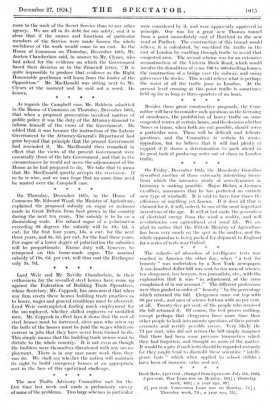The reductio ad absurdum of' intelligence tests was reached in
America the other day, when " a test for honesty " was undertaken by a New York newspaper.
A one-hundred dollar-bill was sent to ten men of science, ten clergymen, ten lawyers, ten journalists, etc., with the explanation that it was " in adjustment of the error complained of in our account." The different professions were then graded in order of " honesty " by the percentage which returned the bill. Clergymen came out top with 66 per cent., and men of science bottom with no per cent. at all. Twenty-five per cent. of the people who received the bill returned it. Of course, the test proves nothing, except perhaps that clergymen have more time than other people to look into minute questions of their private accounts and rectify possible errors. Very likely the 75 per cent. who did not return the bill simply imagined that there had been sonic previous transaction which they had forgotten, and thought no more of the matter. It would be a pity if such tests should be regarded seriously for they might tend to discredit those scientific " intelli- gence tests " which when applied to school childrol have been of immense value and use.
* * * *


























 Previous page
Previous page